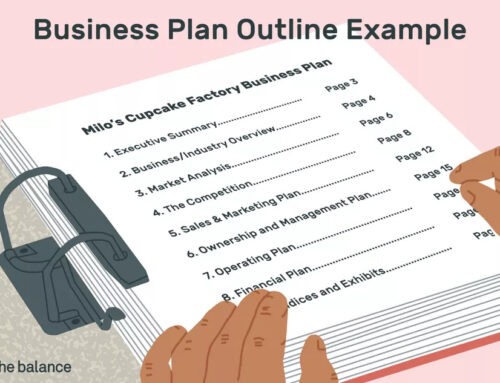If you are in touch with economic news, you might have heard a little bit about the big shake up on Wall Street a couple weeks ago, in which stock traders on subreddits banded together to drive up the price of a few stocks, and took down a powerful hedge fund. This blog won’t be too political- so if you are looking for a personal screed about the greed of Melvin Capital, or a debate about regulation on Wall Street, you aren’t going to get it. I want to use this story to promote an important lesson- the lesson of just how much of an impact you can have on the economy. Concepts such as “the economy”, “the market” or even say, the GDP may seem foreign and vague. News articles may contain a lot of buzzwords that you do not particularly know the meaning of, or statistics that do not make a lot of sense. But no matter what you do for a living, or how much capital you may have, you can find a way to make a difference if you try. Here are four of the most common ways:
1.Invest
 Image Source- https://nazrulhoque.com/blog/stockmarket/
Image Source- https://nazrulhoque.com/blog/stockmarket/Investing is one of the most obvious, straightforward ways to have a stake in the national economy. However, due to financial limitations, investing has long been a game largely dominated by the wealthiest Americans. According to a survey by the Tax Policy Center, 94 percent of individually owned stock value is owned either by the richest 10 percent of Americans, or wealthy foreigners.(https://www.taxpolicycenter.org/taxvox/who-owns-us-stock-foreigners-and-rich-americans) But it doesn’t need to be this way. Many of the obstacles preventing middle class and lower-income Americans from investing is a lack of education or expectation to invest one’s money. You do not need a ton of money to invest, if you so desire, and if things go your way, you can get a solid return on your dollar. There are more trading platforms than ever, some of which are more accessible than others. The situation with GameStop Stock proves this- if a bunch of Redditors can raise a stock’s valuation astronomically, maybe you can do some research, buy some shares, and make yourself some money. Don’t be too dispirited if the gains do not come immediately- most return on investments take time. (Just ask my Grandma who bought a share of Apple stock in 1997.)
2. Choose Where Your $ Goes
 Image Source- https://www.thebalancesmb.com/theft-of-cash-by-employees-462633
Image Source- https://www.thebalancesmb.com/theft-of-cash-by-employees-462633Why does any businesses make money? It’s fairly simple; while a lot of hard work and a little luck goes into making a business, if your company is succeeding, it is because enough customers are choosing to buy your product, or use your service. There is a phenomena in which some large corporations, or mega-famous brands seem to be so well-known that they become the default choice, such as Coca-Cola, or Apple. In many cases, this might be totally logical- they may have the superior product, cheaper price, or greatest convenience. However, there is no requirement forcing one to drink a Coke over say, a Fresca, or buy from Amazon instead of a local store. If you take issue with a business’s product or ethics, you can make a conscious choice not to buy their products. If you want to support a local business impacted negatively be the Coronavirus, you can choose to support it, and rally your friends to the cause. Sometimes this may not be practical, and there is nothing wrong whatsoever with buying the most readily available, cheap product. But sometimes it is easy to forget how much power you have yourself as a consumer. With great power comes great responsibility!
3. Pool Your Money and Ideas:

Just as you can make a conscious choice in terms of where you can buy a product, you can also get together with others to pool money to support a brand or a cause. GoFundMe.com has been one of the most popular sites in recent memory for this very reason. In 2020, about $4 million dollars daily was raised on GoFundMe. While the site initially started largely to help individuals in need, but with tons of small businesses ravaged by Coronavirus and closures, the site, as well as other similar funds raised billions of dollars to help them survive. GoFundMe.com is not a sufficient replacement for government policy in a time of crisis, but the success that some people have seen through raising money off the website is an inspiring example of the power of people voluntarily working together.
In addition to working with others to pool your money, you can also work together to push your ideas and causes. This is a rather vague statement, but there are countless unions, trade associations, advocacy groups, and other organizations in this country, all of which pool their resources in order to draw attention to various causes, promote their ideas, and fight back against unfair treatment. I would suggest looking up some of these organizations that are related to your industry or hobby, or are in your local community, and learning a bit about them. If you do not wish to join any of these formal organizations, that is understandable, but you can always meet up with friends and share your economic ideas, or partake in similar movements online.
4. Start a Business
 https://quickbooks.intuit.com/r/starting-a-business/how-to-start-a-business/
https://quickbooks.intuit.com/r/starting-a-business/how-to-start-a-business/The most direct way to make an impact on the economy is to join it. This happens more frequently than you might think- in a typical year, at least 627,000 new licensed businesses open across the United States. The vast majority of these businesses are small businesses, and immigrants make up a large percentage of these new business owners. This total does not even account for the millions of brands created every year on the Internet, or the majority of which lack a physical location. There are about 30 million total businesses in the United States, over 75% of which are technically classified as small businesses. The practice of being an entrepreneur, and starting a business is a core element of the classic American dream story, and this is no mere fable- it has been the key to greater economic security, and rising social mobility for millions and millions of people. Starting a business is no easy task, but it is far from insurmountable. According to data from the US Chamber of Commerce, between 75-80% of newly created businesses survive their first year in operation. (https://www.chamberofcommerce.org/small-business-statistics/) So if you have a wonderful idea, a great innovation, or just want to find a cool way to monetize your skills in the market- this is a tried and true method. Good luck!





Leave A Comment